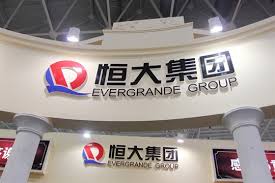Hengda Real Estate Group Co Ltd, the primary unit of China Evergrande Group, applied to suspend trading of its onshore corporate bonds on Thursday following a downgrading, as the country’s No. 2 property developer grapples with a liquidity problem.
The proposal comes after the Shanghai and Shenzhen stock exchanges both froze bond trading in recent days owing to turbulent trading.
Evergrande is rushing to obtain funds as it teeters between a messy meltdown with far-reaching consequences, a planned collapse, and a government rescue, with total liabilities of more than $300 billion.
Market participants believe that the suspension of trade in Hendga’s onshore corporate bonds suggests an increased likelihood of defaults and restructuring.
Rating agency China Chengxin International (CCXI) notified Hengda on Sept. 15 that the bonds’ ratings had been lowered to A from AA, and that both the bonds’ and issuer ratings had been placed on a watch list for further downgrades, according to a stock exchange filing.
Hengda has requested a one-day suspension of trading in its onshore corporate bonds, according to the company. Its Shanghai and Shenzhen exchange-traded bonds will only be exchanged through negotiated transactions when trading resumes on September 17.
The adjustments in the trading process, according to a bond trader who did not want to be identified, were presumably made to limit participation and reduce volatility.
“Many corporations would change their bond trading mechanisms ahead of a default,” he said.
On Wednesday, the company’s Shenzhen-traded January 2023 bond was last quoted at 24.99 yuan, while its Shanghai-traded May 2023 bond was last quoted at 30 yuan.
An Evergrande default has been largely priced into the market, according to James Shi, a distressed debt analyst at credit analytics service Reorg, and a recovery ratio in the case of a projected restructuring will likely be low.
“The market believes Evergrande will default,” Shi stated. He believes the poor recovery ratio is attributable in part to severe losses in many of Evergrande’s non-core operations, which make them difficult to exit.
If Evergrande defaults, according to CreditSights, the likelihood of liquidation is low.
The valuation of Evergrande’s bonds would be appealing for patient investors if they went to 20 cents on the dollar, according to a Shanghai-based vulture bond fund manager who specializes in junk-rated assets.
According to financial data source Duration Finance, Evergrande’s 8.75 percent June 2025 dollar bond was trading at 29.375 cents on Thursday morning, up around 4 cents from Wednesday’s lows.
Because Evergrande has dollar bonds issued by both the parent business and a special purpose entity, Goldman Sachs stated in research that recoveries in a prospective restructuring could differ between the two sets of bonds, and any potential restructuring procedure could take longer.
Concerns about Evergrande’s debt crisis spreading to other Chinese high-yield issuers have surfaced. On Thursday morning, an index of Chinese high-yield dollar debt (.MERACYC) plummeted to 374.646, its lowest level since April 14, 2020.
The developer was downgraded for the second time this month by CCXI. Evergrande and its onshore bonds were downgraded to AA from AAA on September 2, making them unsuitable for pledged repo trading.
S&P downgraded Evergrande to “CC” from “CCC” this week, with a negative outlook, citing diminished liquidity and default risks, including the prospect of debt restructuring, while Fitch warned an Evergrande default may put a variety of sectors at risk.

















